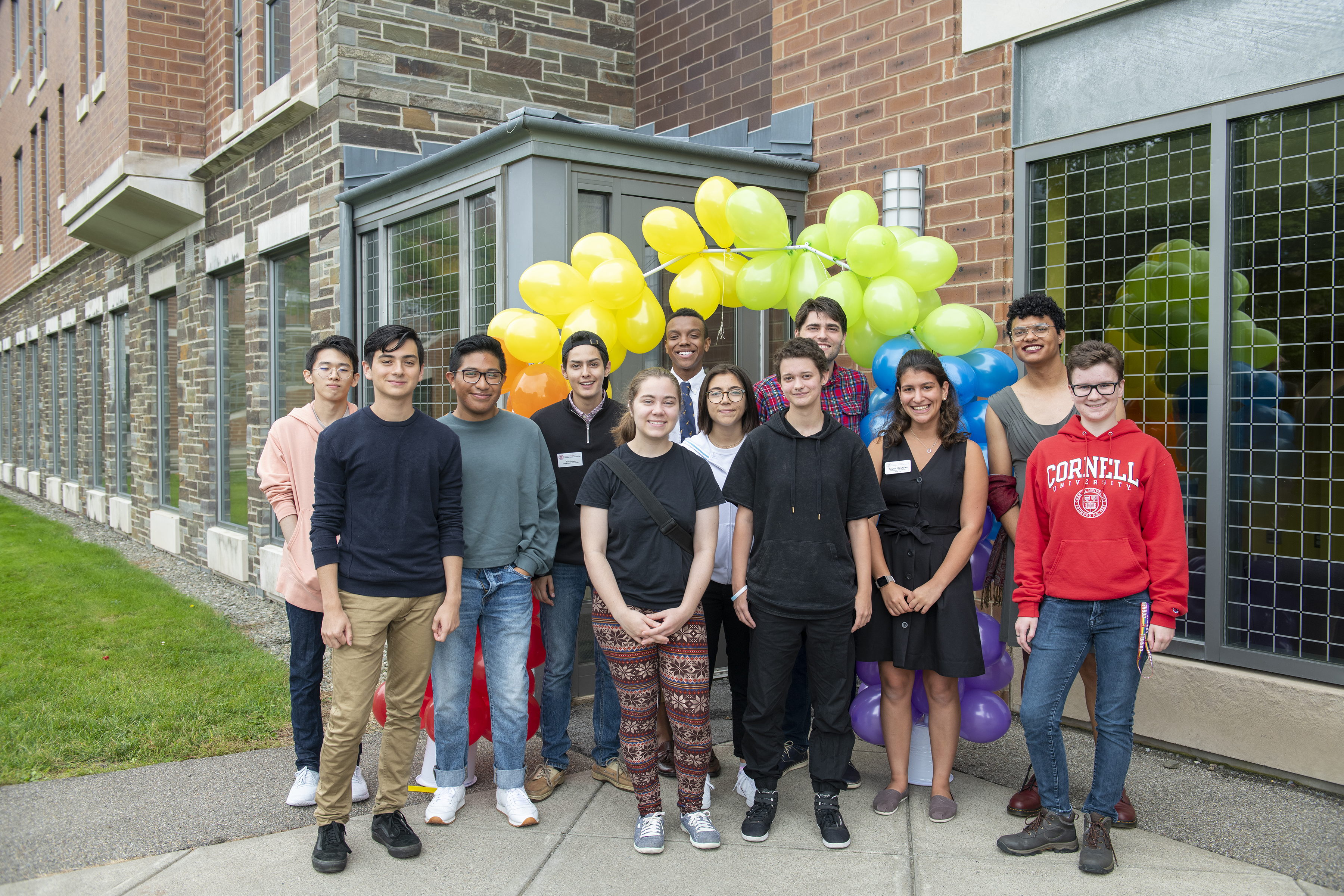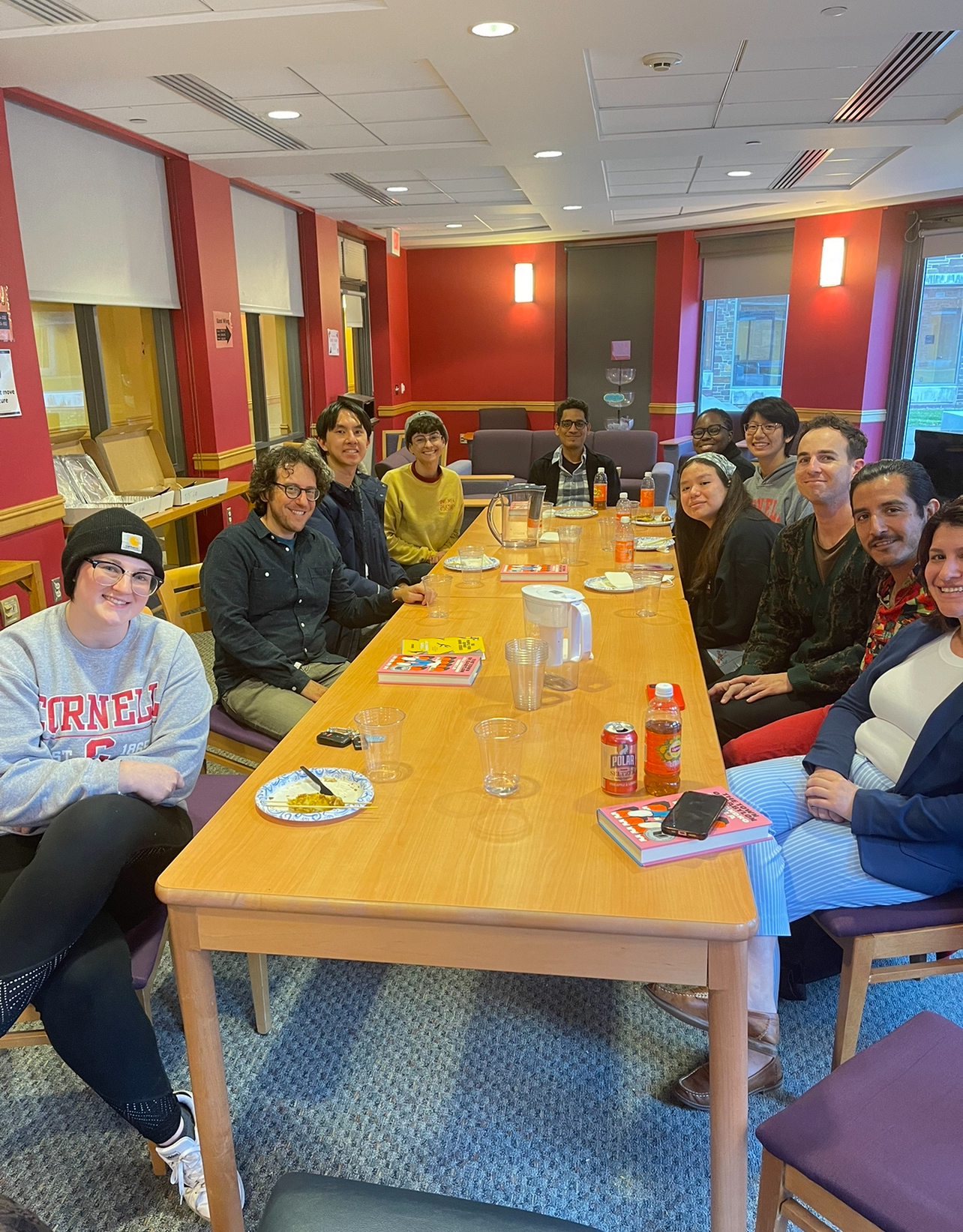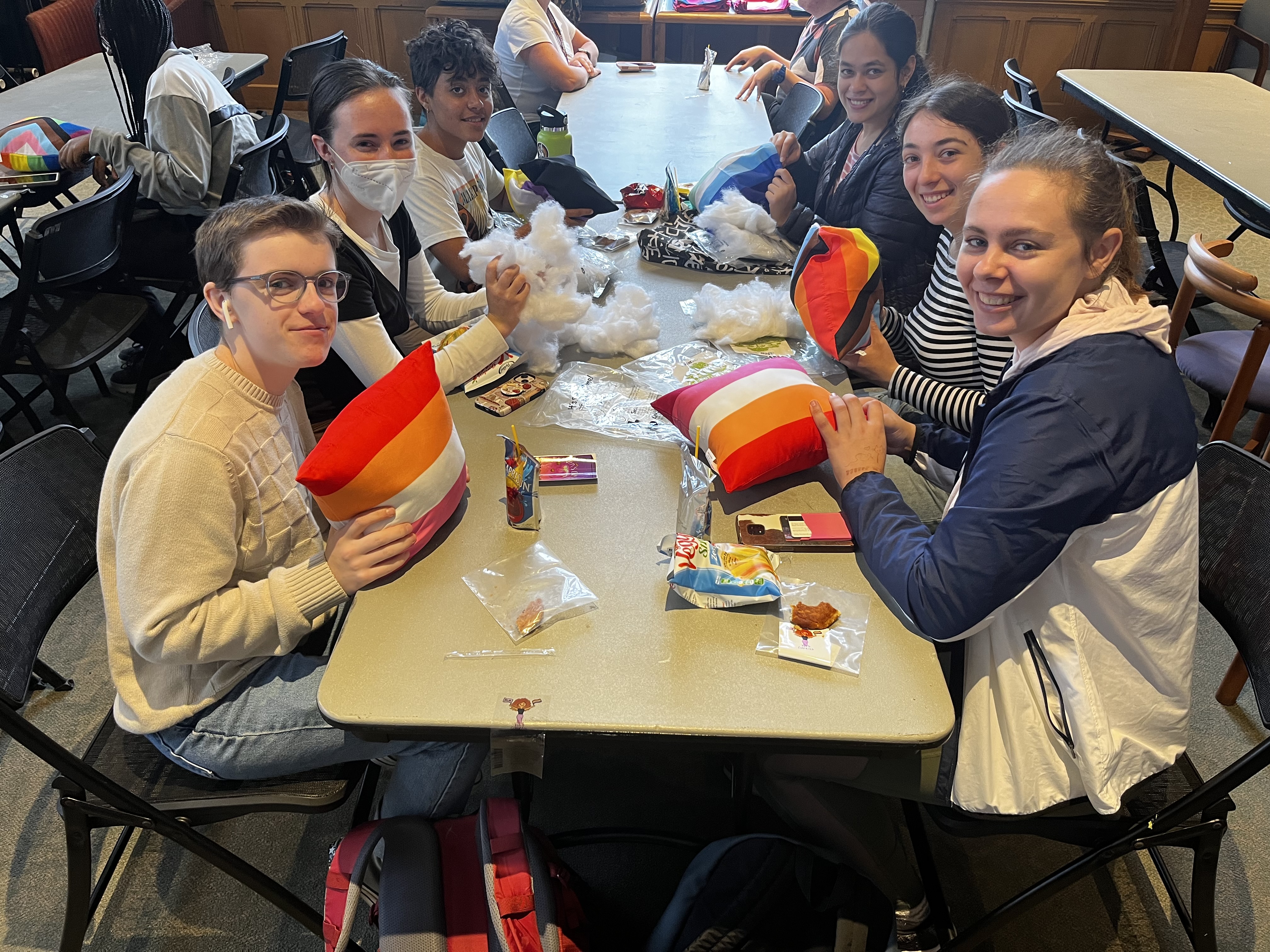Loving House creates space for LGBTQ+ students to explore identity and embrace community

By Kelly Kuehn, Student and Campus Life
Mars Reynoso ’27 (they/them) remembers the first time they heard about Loving House. They were looking at housing options after being accepted to Cornell, and as they read about the program house’s mission and community, they knew they wanted Loving House to be their home on the Hill.
“I was very excited to live there because I wanted to make friends with other queer people and live in a space where I felt comfortable,” Reynoso said.
They moved into Loving House for the Fall 2023 semester, feeling both excited and nervous to live on campus as a first-year student. After moving in and talking to fellow residents, they explored one of Loving House’s lounges, looked at the Pride art on its walls, and browsed its library of queer books. The space made them feel included and safe — two key themes that define Loving House’s purpose.

The community’s founding
Loving House opened in the Fall of 2019. It’s open to all students and provides a safe and supportive residential space for Cornell’s LGBTQ+ students.
“It's a space for students to think critically about their identities and feel comfortable doing so,” said Taylor Bouraad, the first residence hall director for Loving House and a member of its steering committee. “It’s important for people to feel safe while exploring themselves and their community.”
Located within Mews Hall, Loving House is home to an inclusive community of first-year, transfer, and upper-level students, including Jules Iwasko ’26. Iwasko moved into Loving House his second year at Cornell after having an out-of-house membership that allowed him to access the building and its events during his first year on campus.
“A lot of my fondest first-year memories were made in Loving House, despite not living there, which is a testament to how open the community is,” Iwasko said.
Iwasko describes the Loving House community as welcoming and inclusive, something he appreciated as he adjusted to life at Cornell.
“I struggled to make friends during my first year, but when I got involved with Loving House, it felt like I had an automatic, tight-knit group of friends who were always accepting,” Iwasko said. “I didn't feel like I had to explain myself or my gender identity to anyone here.”
The Loving House community bonds through several activities ranging from movie and craft nights to coffee chats with Counseling & Psychological Services (CAPS) counselors about mental health and gender-affirming care. Several Cornell faculty and staff members are also part of the Loving House community, serving as faculty and community fellows who help students explore their social and academic interests. Bouraad is a community fellow, teaching a course called “Learning Where You Live” that encourages first-year residents to explore their LGBTQ+ identities.
“I love connecting with students inside the classroom and the residence hall at the same time,” Bouraad says. “It’s great seeing them think about Queer history while exploring their identities in a space that's designed for them to do so.”
Cortney Johnson (she/they), Associate Dean of Students and Director of the LGBT Resource Center, is also a community fellow for Loving House. She collaborates with Loving House’s leadership team to plan events and promote the center’s resources to residents.
“We have similar missions and values serving LGBTQ+ students on campus, so I’m grateful we have a strong partnership,” Johnson said. “It's so important for Loving House to exist so students can live in an area that is explicitly gender inclusive and inclusive of all sexualities and romantic orientations. It helps foster a culture of belonging on campus.”

Empowering community through access and inclusion
Reynoso and Iwasko say living in Loving House has positively influenced their experiences at Cornell. For Reynoso, it’s provided a welcoming place they come home to after class.
“It gives me a chance to separate my identity from academics and decompress with my friends,” Reynoso said.
Loving House has given Iwasko a sense of belonging on campus, which has empowered him to take on leadership roles and feel more connected to the larger Cornell community.
“I’m a community engagement coordinator at the LGBT Resource Center and the vice president of a trans club on campus called TANGO (Trans, Agender, Nonbinary, Genderfluid, and Others),” Iwasko said. “I wouldn’t have been able to pursue those opportunities had it not been for that sense of belonging I’ve felt at Loving House.”
Iwasko also says living in Loving House gave him the ability to connect with Cornell’s community on a deeper level.
“I was more introverted when I first came to Loving House,” Iwasko said. “Finding friends that automatically understood me and my identity made it a lot easier to open up and feel confident in myself and my ability to make friends in other places around Cornell.”
Bouraad also feels Loving House’s influence in her life. Being part of Loving House helps her think critically about her identities and how they show up in her everyday life. She’s also found inspiration from Loving House’s residents.
“Being around so many people who are fully themselves is really empowering and so special,” Bouraad said.
Johnson is grateful that a space like Loving House exists at Cornell, especially for students who need additional support on topics ranging from housing over winter break to going home to family challenges.
“The fact that Loving House provides support for these things without question is amazing,” Johnson says. “It’s a really thoughtful way to be inclusive and that adds to the overall campus experience.”
If you have questions about the Program Houses at Cornell, contact the Housing Office at housing@cornell.edu or call 607-255-5368.
